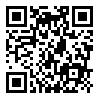Wed, Apr 24, 2024
| فارسی
Volume 8, Issue 1 (8-2013)
bjcp 2013, 8(1): 47-60 |
Back to browse issues page
Abstract: (11131 Views)
Abstract
The aim of this study was to investigate and compare the ability of Contingency Naming Test in predicting math achievement. For this purpose 80 fourth grade students with math difficulties and 80 fourth grade normal students (without math difficulties) were selected. The following tests were then administered: The Iran Key Math Test (IKMT), the Contingency Naming Test (CNT), Digit Span (DS) subtests of the Wechsler Intelligence Test (WIT) and the Stroop Test (ST). From the CNT we obtained measures of response time, the number of self-corrections, the number of errors and efficiency scores. Stepwise Multiple Regression analysis results revealed that the number of errors and response time in two-attribute task and efficiency scores in one and two-attribute tasks had more ability in explaining math achievement. Also the number of errors of CNT and interference score of stroop test (inhibition of proponent response) had a significant relationship. The other results showed that the CNT in comparison with inhibition and working memory tests had more ability in predicting math achievement. The results can be helpful in the identification and planning of neuropsychological interventions for students with math difficulties.
Type of Study: Research |
Subject:
Special
Received: 2013/09/15 | Accepted: 2013/11/20 | Published: 2013/11/20
Received: 2013/09/15 | Accepted: 2013/11/20 | Published: 2013/11/20
| Rights and permissions | |
 |
This work is licensed under a Creative Commons Attribution-NonCommercial 4.0 International License. |

